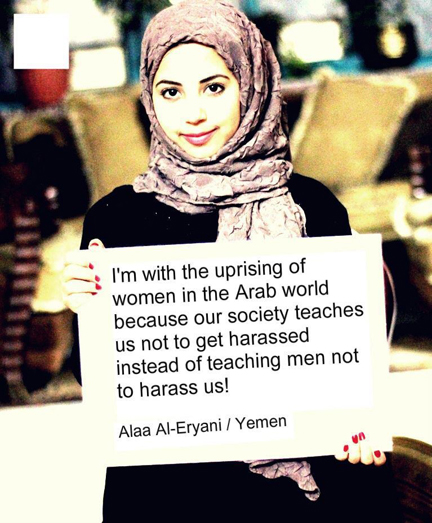|














|
|
|
NEWS & LETTERS, November - December 2012
World in View
Yemen: famine, drones and freedom
by Gerry Emmett
Demands for freedom and dignity drove the Arab Spring. In Tunisia, in Tahrir Square in Egypt, in Daraa, Syria, and elsewhere these weren't abstract, but concrete efforts to create new human relations under conditions of dictatorship, capitalist crisis, endemic corruption, spiraling food prices and environmental degradation. While bourgeois commentators have rushed to declare the Arab Spring over, Yemen reveals that all these issues remain determinants. The overthrow of dictator Ali Abdullah Saleh was one episode in a continuing struggle.
This year Yemen has been gripped by its worst recorded famine. One of every two Yemenis is affected by the food crisis, with a million children now at risk of malnutrition. The UN considers up to five million Yemenis as being "food insecure." Billions of dollars in promised aid hasn't materialized, and much of what has come goes to infrastructural development that doesn't meet the immediate need.
The concurrent water crisis has added to the problems. Sanaa, Yemen, is in danger of becoming the first national capital to literally run dry.
U.S. SEES CRISIS AS A WAR ZONE
With all its problems, Yemen remains a destination for refugees from crisis-ridden Ethiopia and Somalia who seek work in Saudi Arabia and the Gulf states. Over 70,000 arrived this year. They have little protection, and are often subject to kidnapping for ransom. Many women simply disappear. The crisis is regional and worldwide as well--it is part of humanity's crisis.
While the world has looked away from Yemen, the U.S. has looked and seen only a new battlefield in its endless "war on terror." Innocent Yemenis in al-Majalla, Abyanin, Marib and elsewhere--who weren't seen as human beings but as just collateral damage--have been killed by drone strikes controlled from thousands of miles away.
While most Yemenis have no sympathy for al-Qaeda, they remain resolutely opposed to this kind of extrajudicial execution and outright murder. In the words of lawyer Heykal Bafana: "America has lost the war. If you trash your own values, if you rip up your Constitution and destroy the very freedoms that you say define America just for the purpose of this 'war against terror,' then you've won the war for al-Qaeda. Because there is no longer an America that's recognizable."
Yemenis see the drone strikes as one more in a long series of insults and injuries, including the U.S. government's long-time support for the Saleh regime. These insults continue, for example, when U.S. Ambassador Gerald Freiestein recently talked about business opportunities in Yemen without mentioning the current famine.
As journalist Shatha al-Harazi said, "They talk about universal values and human rights. But their actual doings speak for themselves." The thinking of the U.S. government, where every human relationship must be reduced to commodity exchange, remains light years from the concrete struggle for new human relations that has existed in Yemen, and which continues in the occupation of Change Square.
A REVOLUTION THAT CONTINUES

Change Square in Sanaa, the center of the revolution against Saleh, remains filled with tents, people and ideas. This bright light exists and contains those who are still fighting for Arab Spring and a new society, especially, of course, the women. The youth, women, workers and national minorities always recognized that getting rid of a dictator was only a first step. "We didn't come here to fight against one person. The goals of the revolution have not all been achieved," student Ibrahim al-Khatab told the Guardian Weekly (Aug. 21, 2012).
There is unity among the opposition in wanting to be rid of the remnants of the dictatorship that include Saleh's son, Ahmed Ali, who still controls the Republican Guard. Saleh himself remains in Sanaa and continues to wield significant political influence.
Beyond this are the continuing demands of women and youth for a new way of life and the need to respond to the global capitalist crisis. Beyond this remains a battle of ideas.
This battle won't be easy. Between local oppressors, the neighboring Saudi oil-kingdom theocrats and their capitalist allies, the revolution in Yemen has powerful enemies. But the revolutionary Reason embodied by the freedom fighters can be more powerful if it articulates a philosophy of revolution that breaks those mental shackles and discloses a path to freedom as well as solidarity with all those the world over who fight to be free.
It is toward that end that Marxist-Humanists in the U.S. work. It is this which leads us to follow the development of the Yemeni revolution and solidarize with it. We are one with our sisters and brothers and will do all in our power to help you. The struggle continues.
|

Crossroads of History
Marxist-Humanist Writings on the Middle East
by Raya Dunayevskaya
News & Letters, 2012. 134 pp.
$10 + $2 postage
* * *

Subscription for one year
$5
|

